Workday Compensation
Welcome to the world of Workday! We are so excited to have you join us for this training session. Over the next few days, you will be exploring the many features of Workday and learning how to use it effectively. You’ll be learning how to create and manage employee data, utilize reporting tools, and more. Get ready to take your knowledge of Workday to the next level!
Let me give you a brief on Workday
Workday is an integrated human capital management (HCM) and financial management (FM) platform designed to help organizations improve their business operations. It is a cloud-based solution that combines the power of analytics and automation to streamline your processes and increase efficiency. Workday Technology allows businesses to manage their employees, payroll, benefits, and other aspects of human resources, as well as financial operations like budgeting, forecasting, and reporting. By leveraging Workday Technology, businesses can gain a better understanding of their operations and make more informed decisions.
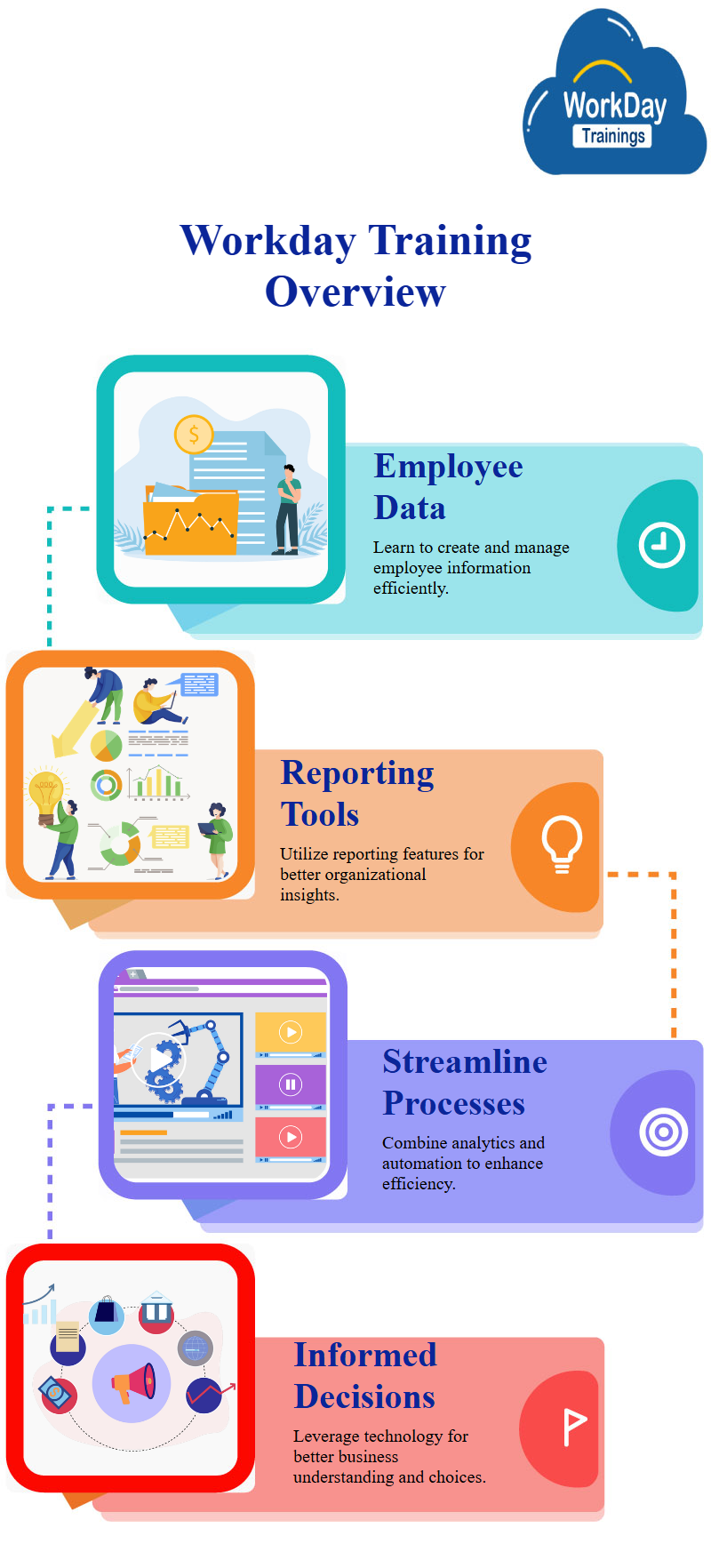
Are you Confused about Workday Compensation?
Workday compensation refers to the payment arrangements an employer makes with its employees for their work. This includes wages, bonuses, commissions, overtime pay, and other benefits such as health insurance and retirement plans.
A workday compensation package can be tailored to each individual employee, depending on the type of job, the hours worked, and the company’s budget and goals. Wages are the most common form of workday compensation.
They are usually based on an hourly rate, and the number of wages received depends on the employee’s job, experience, and performance. Employers can also offer bonuses, which are usually based on either a percentage of the employee’s wages or a flat amount. Bonuses are generally used as incentives to motivate employees to perform better on the job. Commissions are another form of workday compensation, and they are usually based on the employee’s sales performance.
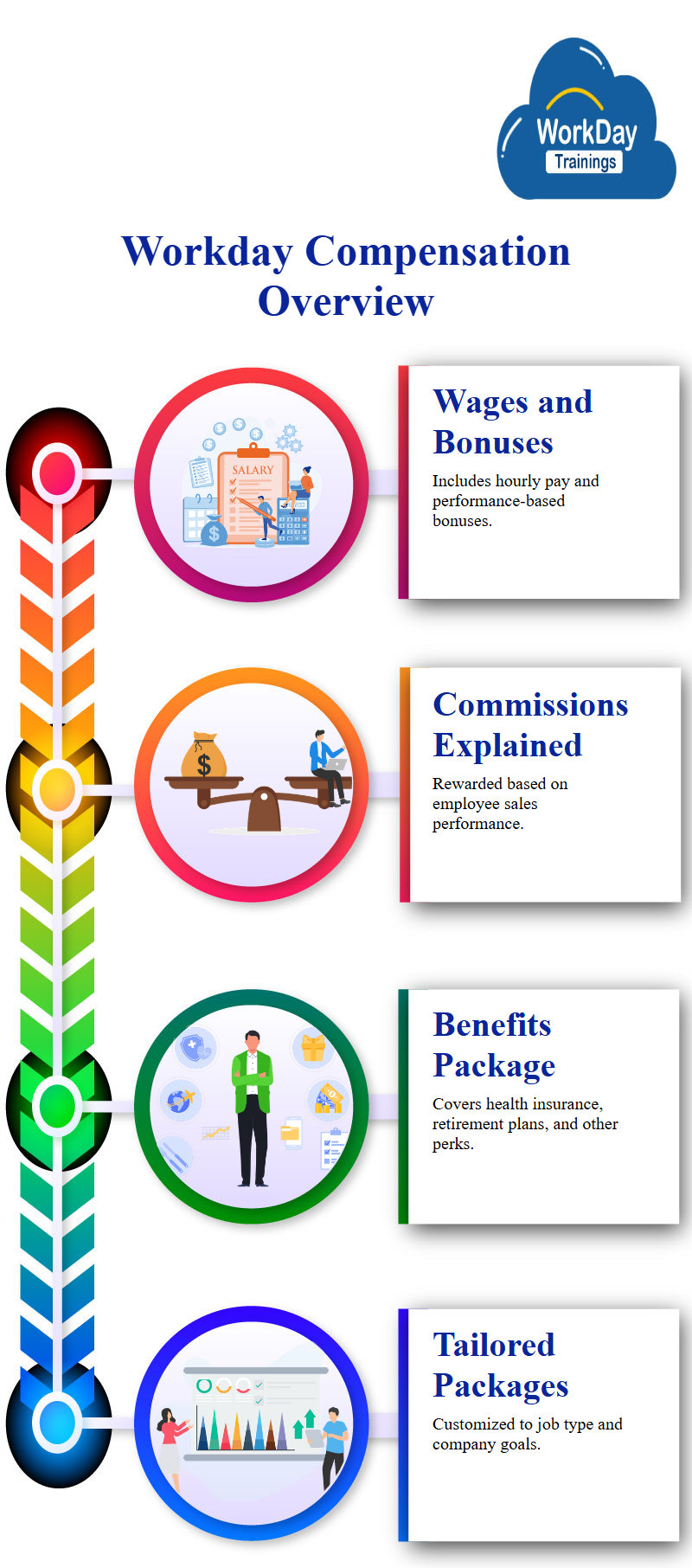
What can be the Features of Workday Compensation?
Workday compensation features provide employers with the tools they need to ensure that their employees are fairly and properly compensated.
These features include:
- Payroll Management: This feature allows employers to manage payrolls, ensuring that employees are paid accurately and on time. It also allows employers to set up automated payment schedules, view employee hours and earnings, and track payroll taxes.
- Wage and Hour Tracking: This feature allows employers to track their employees’ wages and hours worked, ensuring that workers are paid correctly and in full. It also allows employers to audit payrolls to ensure that wages and hours are correctly reported.

- Benefit Management: This feature allows employers to set up and manage employee benefits, including health insurance, retirement plans, and other employee benefits. It also allows employers to track benefits expenses and monitor utilization.
- Performance Management: This feature allows employers to measure and track employee performance, as well as set and review goals. It also helps employers to reward employees for their performance and recognize their accomplishments.
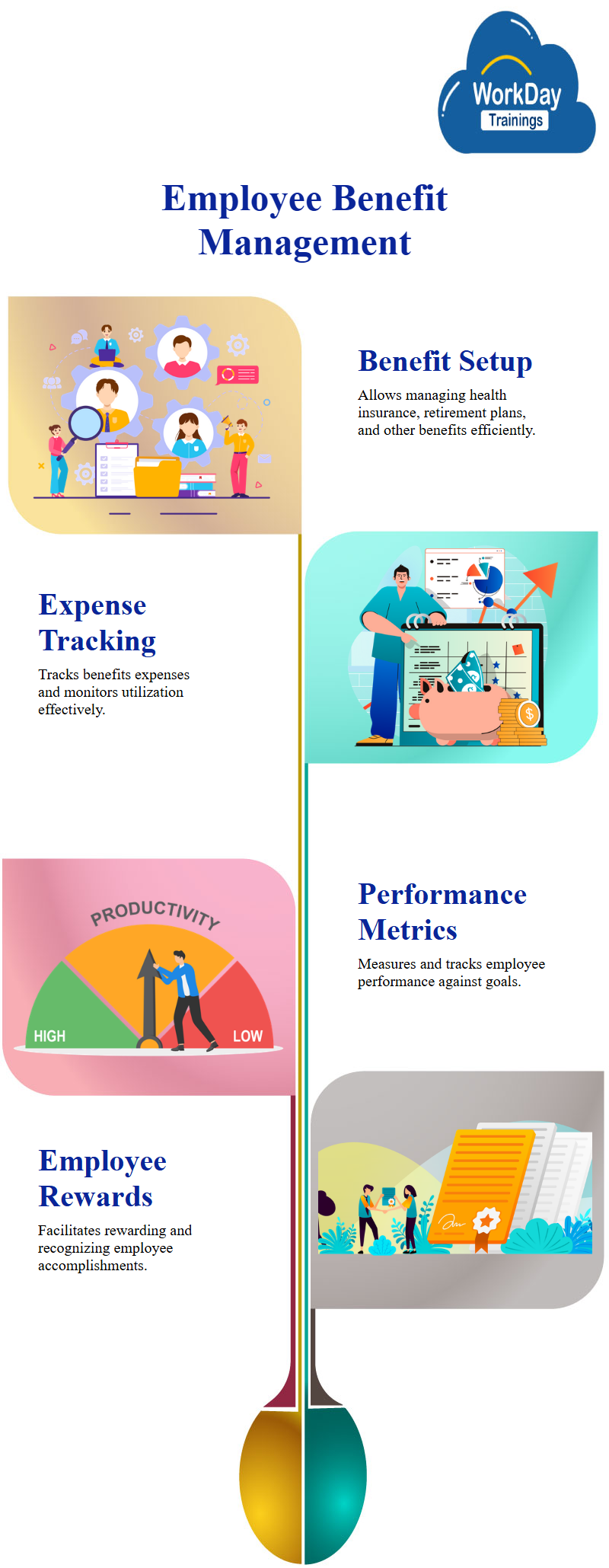
What are your thoughts about the importance on Workday Compensation?
Workday compensation is an important factor in the success of any organization. It sets the tone for employee morale, motivation and productivity, and is a key factor in attracting and retaining talent. A good compensation package motivates employees to perform their best and is essential to creating a positive work environment. In addition, it helps to ensure that employees are being fairly compensated for their hard work and effort, which can help to build loyalty and create a positive work culture.
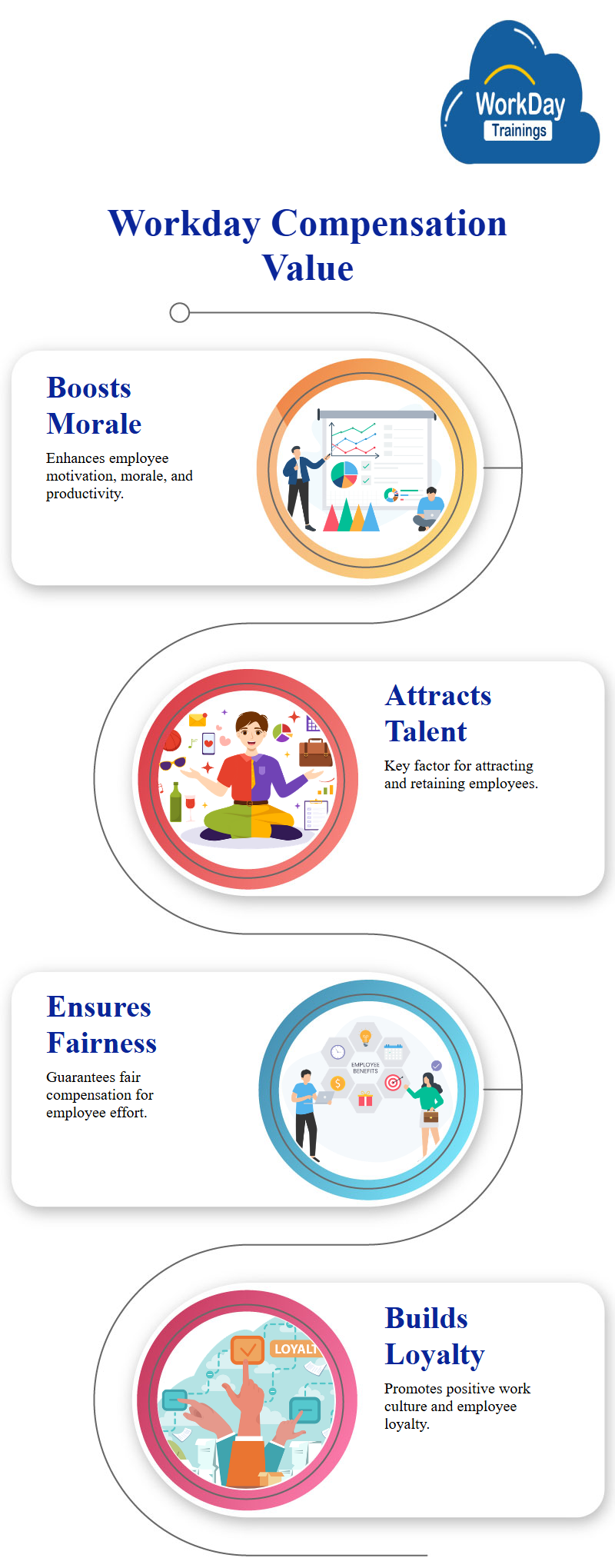
What are the job Opportunities for Workday Compensation?
Workday Compensation professionals are responsible for helping organizations to design, implement, and monitor compensation programs. This includes creating job descriptions, setting salaries, developing incentive plans, and ensuring compliance with all federal and state regulations.
The job opportunities for Workday Compensation professionals are plentiful, as companies of all sizes are looking for individuals to help them manage their compensation programs. These professionals typically have a background in human resources, finance, or business administration.
Specific job duties may include working with internal and external stakeholders to develop and manage compensation budgets and plans, advising on best practices, analyzing data to inform decisions, and implementing strategies to ensure compliance with laws and regulations.
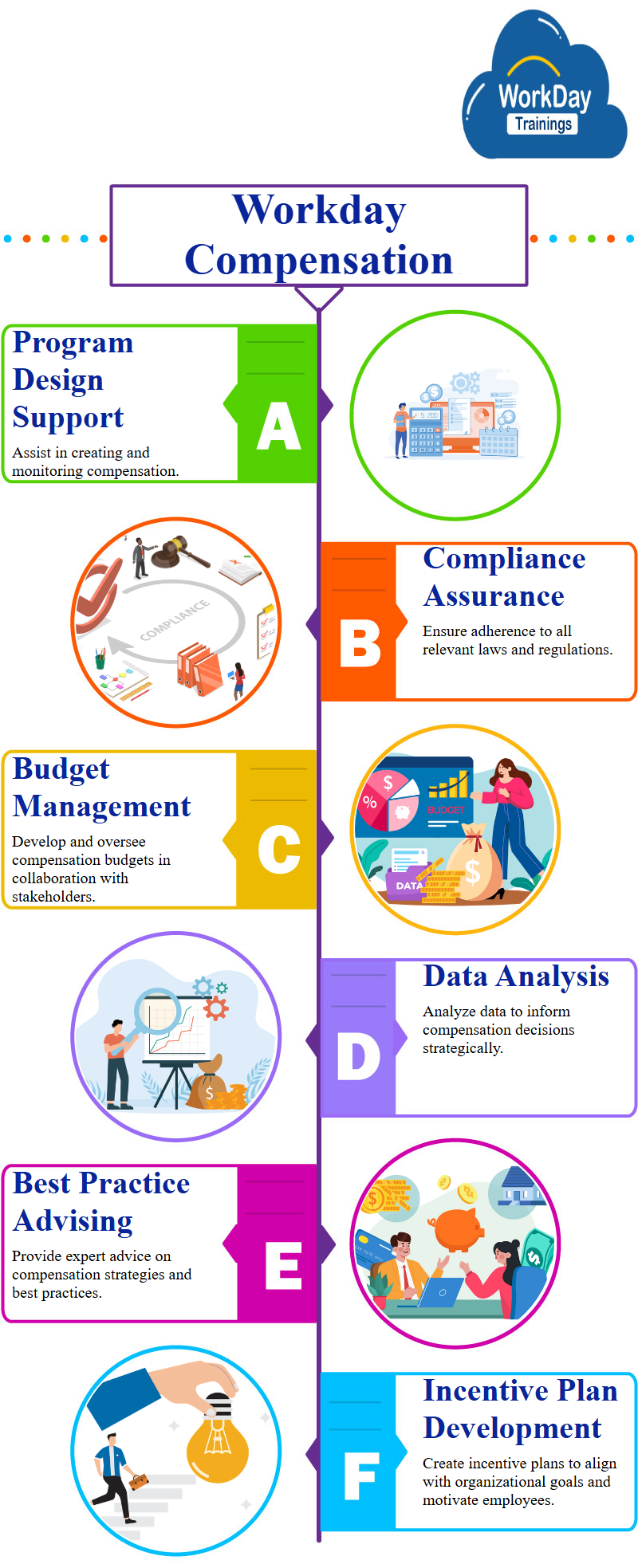
Workday Compensation professionals must also be able to communicate effectively with colleagues to ensure alignment with company goals and objectives.
Workday Compensation professionals can work in a variety of industries, including retail, technology, healthcare, and financial services. They can be employed by large corporations, government agencies, or consulting firms. The salary range for these professionals can vary widely depending on experience, skills, and the organization.
Workday offers two types of training
Instructor-led live training helps learners gain knowledge through online classes. The Instructor leads the class and provides guidance and feedback.
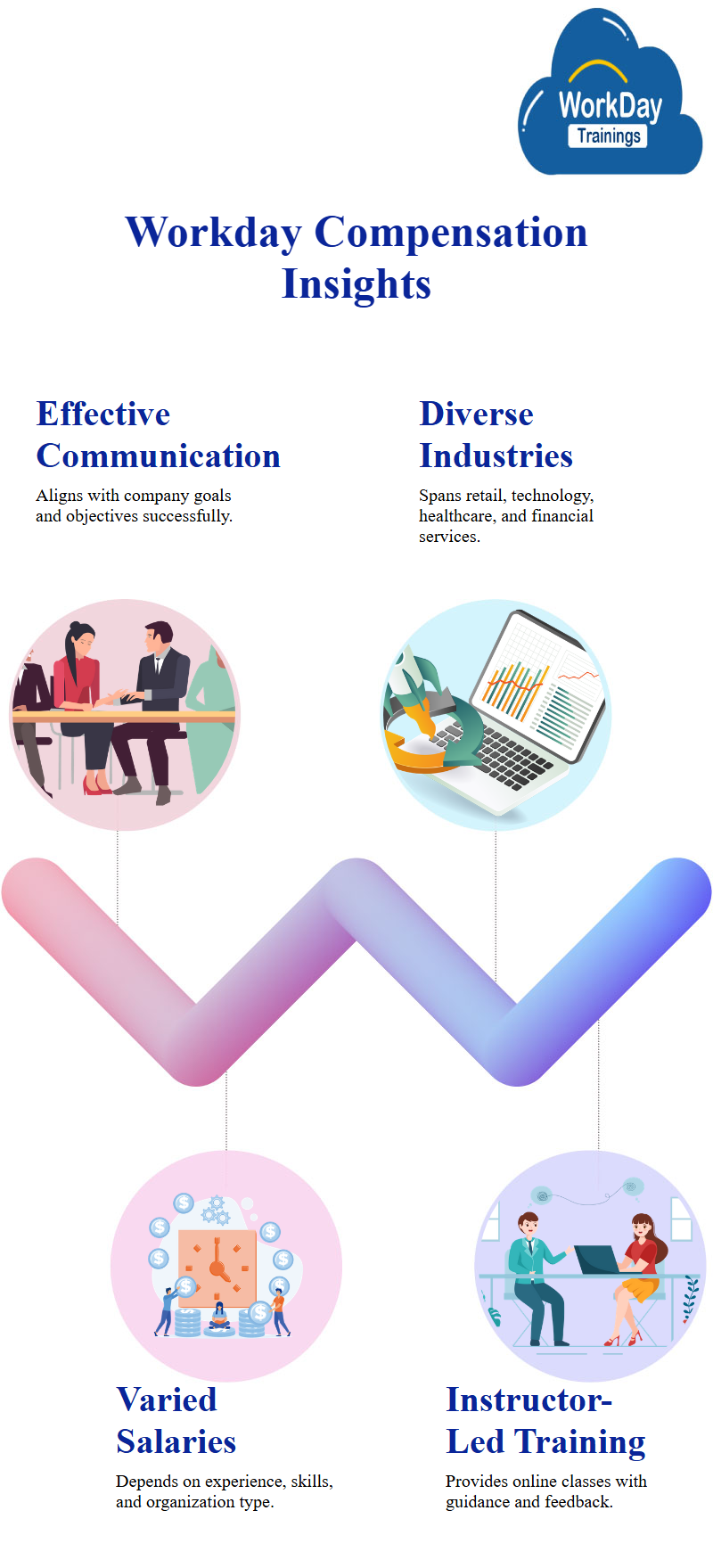
What is the Conclusion for Workday Compensation?
The conclusion regarding worktime compensation is that employers must provide fair and equitable compensation for all hours worked by their employees in accordance with the applicable laws and regulations.
Employees should also be aware of their rights and be sure to document their hours worked and any problems they may encounter in order to ensure they are receiving fair and equitable compensation.

